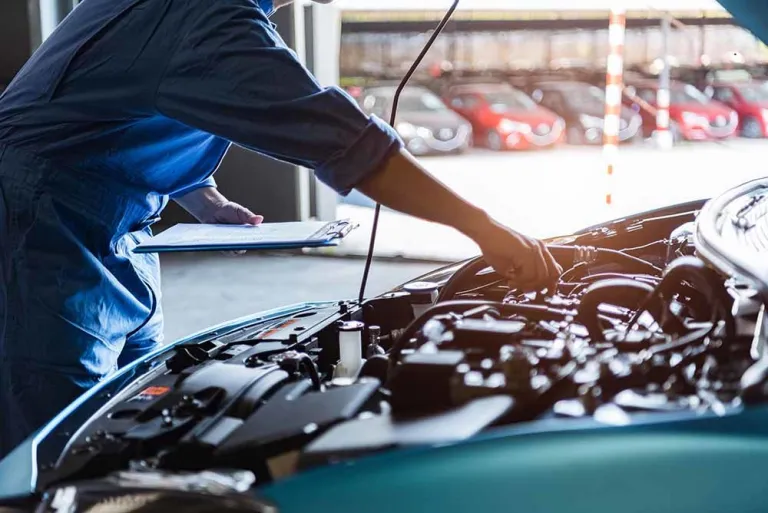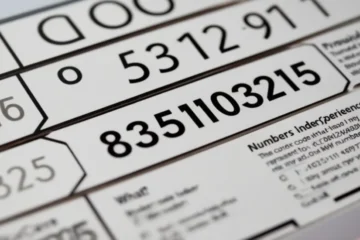Owning a car comes with the responsibility of regular maintenance to ensure it runs smoothly. However, even with routine care, there are times when your vehicle will require major repairs. Ignoring these issues can lead to even more costly fixes down the road, or worse, an unsafe driving experience. Knowing when to call a mechanic can save you time, money, and potential headaches.
Here are the key signs that your car might need major repairs:
1. Strange Noises
One of the most obvious indicators that something is wrong with your car is when it starts making unusual noises. While some sounds may be harmless, others can point to serious issues that require professional attention.
- Grinding or squealing when applying the brakes often indicates worn brake pads or damage to the brake system, both of which require immediate attention.
- Hissing sounds might suggest a problem with the exhaust system or a leaking hose.
- Rattling noises from under the car could be a sign of loose or broken parts, such as the muffler or exhaust system.
- Knocking or tapping sounds from the engine can point to low oil levels or problems with the engine’s internal components, such as the pistons or valves.
If you hear any of these noises, it’s crucial to have your car inspected by a mechanic before the issue worsens.
2. Warning Lights on the Dashboard
Modern vehicles are equipped with an array of sensors and monitoring systems that alert you when something’s wrong. The check engine light is one of the most common indicators that something may need attention. While some drivers may dismiss it as an inconvenience, ignoring it can lead to major damage.
- A flashing check engine light typically indicates a serious issue, such as a misfire or a failing catalytic converter.
- The ABS light signals problems with the braking system.
- A low oil pressure light or engine temperature warning light should never be ignored, as these issues could cause severe engine damage.
If any of these warning lights stay on or start blinking, it’s time to visit a mechanic for a full diagnostic check.
3. Loss of Power or Acceleration Issues
If your car struggles to accelerate or experiences a significant loss of power while driving, this is a serious issue. It can be a sign of a failing engine, transmission, or fuel system. Common causes include:
- Transmission problems: Difficulty shifting gears or slipping gears while driving can point to a malfunctioning transmission. This is a major repair that can be expensive if not addressed promptly.
- Fuel system issues: Clogged fuel injectors or a failing fuel pump can reduce engine performance and fuel efficiency.
- Engine misfire: An engine misfire can cause a noticeable loss of power, rough idle, and poor acceleration.
Driving with a loss of power can be dangerous, as it may prevent you from accelerating quickly in traffic or merging onto highways. If you experience this, make sure to have your vehicle inspected immediately.
4. Unusual Vibrations
Cars are designed to provide a smooth driving experience. If you start feeling unusual vibrations or shaking, especially when braking or driving at high speeds, it’s a red flag that something is wrong.
- Vibrations while braking could indicate warped brake rotors or issues with the braking system.
- Shaking at high speeds might be caused by unbalanced tires, misalignment, or problems with the suspension.
- Steering wheel vibration can point to a misalignment, worn-out suspension components, or issues with the steering system.
Vibrations can affect your control over the vehicle, so they should not be ignored. A visit to the mechanic will help identify the root cause and prevent further damage.
5. Fluid Leaks
Fluid leaks are a clear indication that something is wrong with your car. If you notice puddles or spots of liquid under your vehicle, it’s important to determine the type of fluid and where it’s coming from.
- Oil leaks are a common issue that can lead to engine damage if left untreated. Low oil levels can cause the engine to overheat or seize up.
- Coolant leaks can lead to engine overheating and potential failure.
- Transmission fluid or brake fluid leaks are also concerning and require immediate attention to avoid serious malfunctions.
- Power steering fluid leaks can make steering difficult, leading to safety issues.
If you notice any leaks, it’s important to have the area inspected to identify and repair the source before more serious problems develop.
6. Overheating
If your car’s engine starts to overheat, it can cause severe damage. Overheating is often caused by problems with the cooling system, including a malfunctioning radiator, water pump, or thermostat.
- If your temperature gauge shows the engine is running hot, or if steam starts rising from under the hood, pull over immediately and turn off the engine. Continuing to drive while the engine is overheating can cause a blown head gasket or permanent engine damage.
- Sometimes overheating is the result of a blocked radiator, low coolant, or a failing thermostat. In any case, it’s best to call a mechanic to inspect the cooling system before the damage becomes more severe.
7. Difficulty Starting the Car
If your car struggles to start, it might be a sign of a failing battery, alternator, or starter motor. These issues can prevent the car from starting properly, and if ignored, they could leave you stranded.
- If you hear a clicking sound when turning the key or if your car takes longer than usual to start, it’s a good idea to have your electrical system checked.
- A dead or weak battery is the most common cause, but problems with the alternator or starter motor may also be the culprit.
In Conclusion
Identifying the signs that your car requires major repairs is crucial for maintaining both its safety and performance. Whether you’re noticing unusual sounds, dashboard warning lights, or experiencing a drop in performance, it’s always wise to seek advice from a professional mechanic if you’re unsure. Addressing issues promptly can help avoid costly repairs down the line, ensuring that your vehicle remains reliable and roadworthy. If you’re facing unexpected repair costs, consider options like auto title loans in Salt Lake City to help cover expenses and get your car back in top condition.




